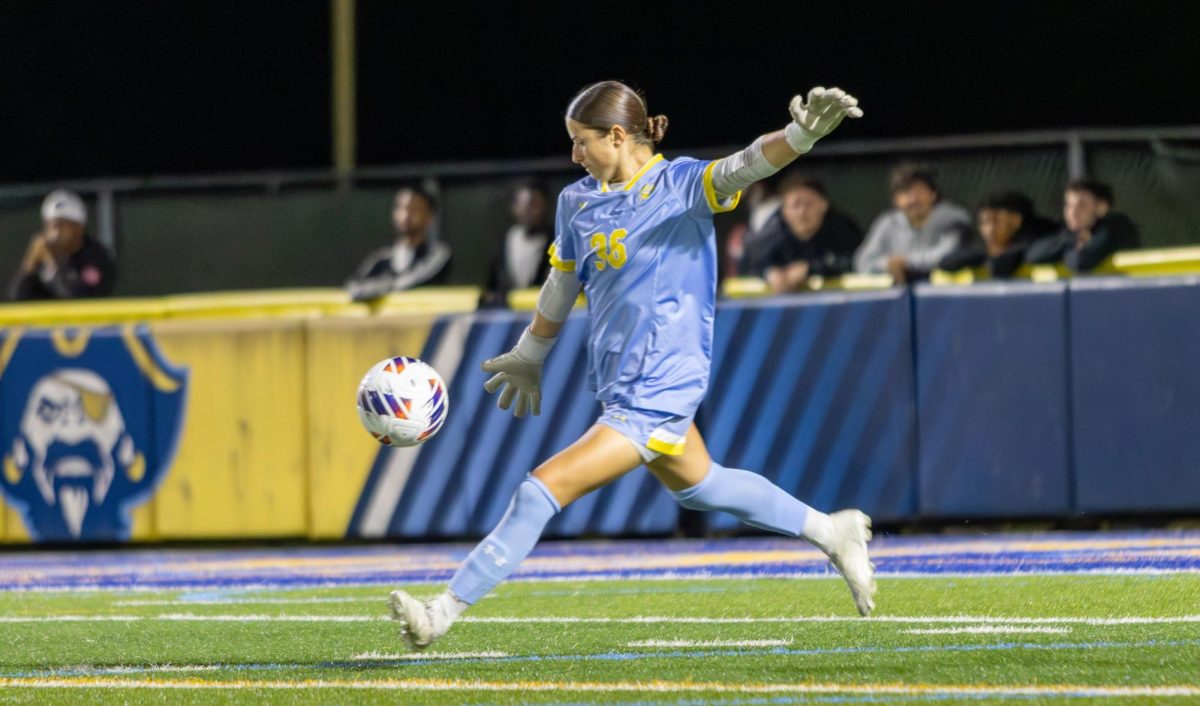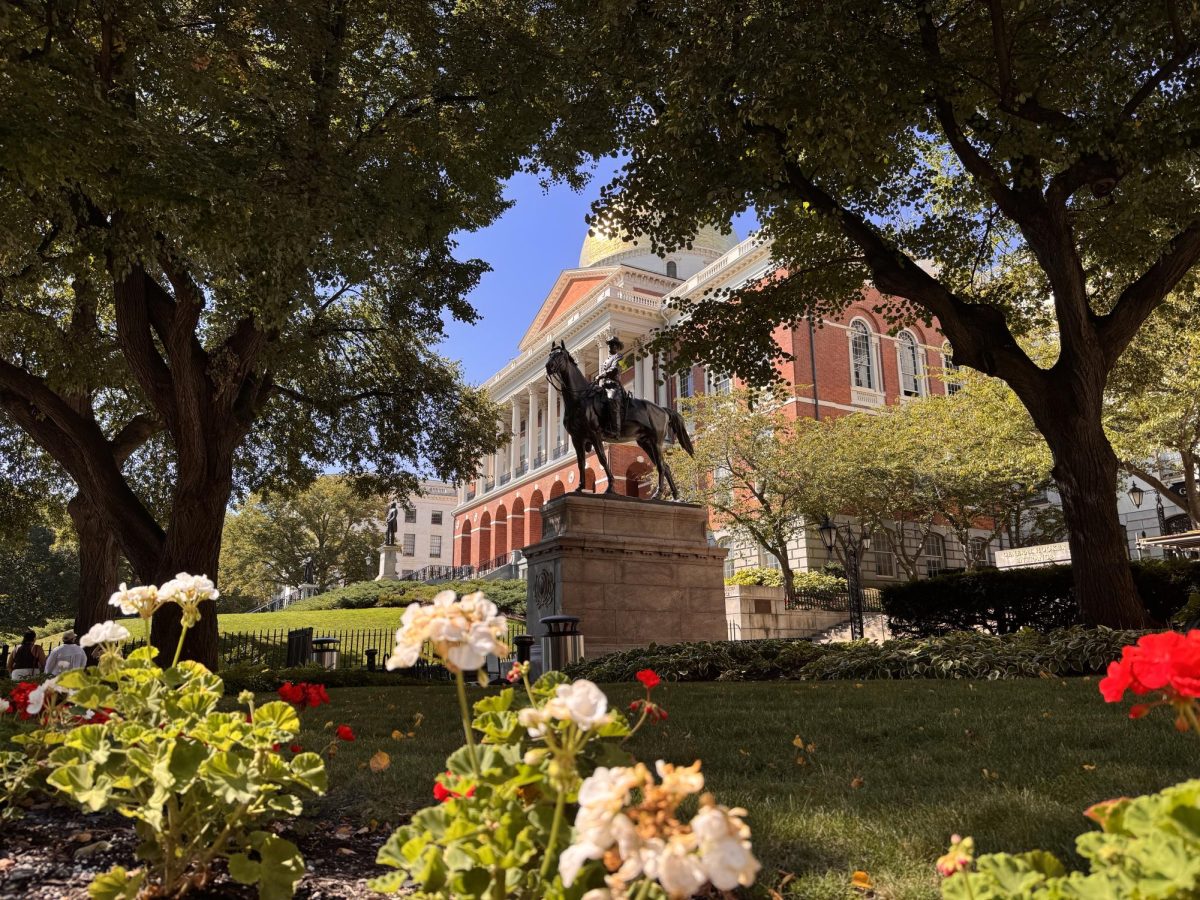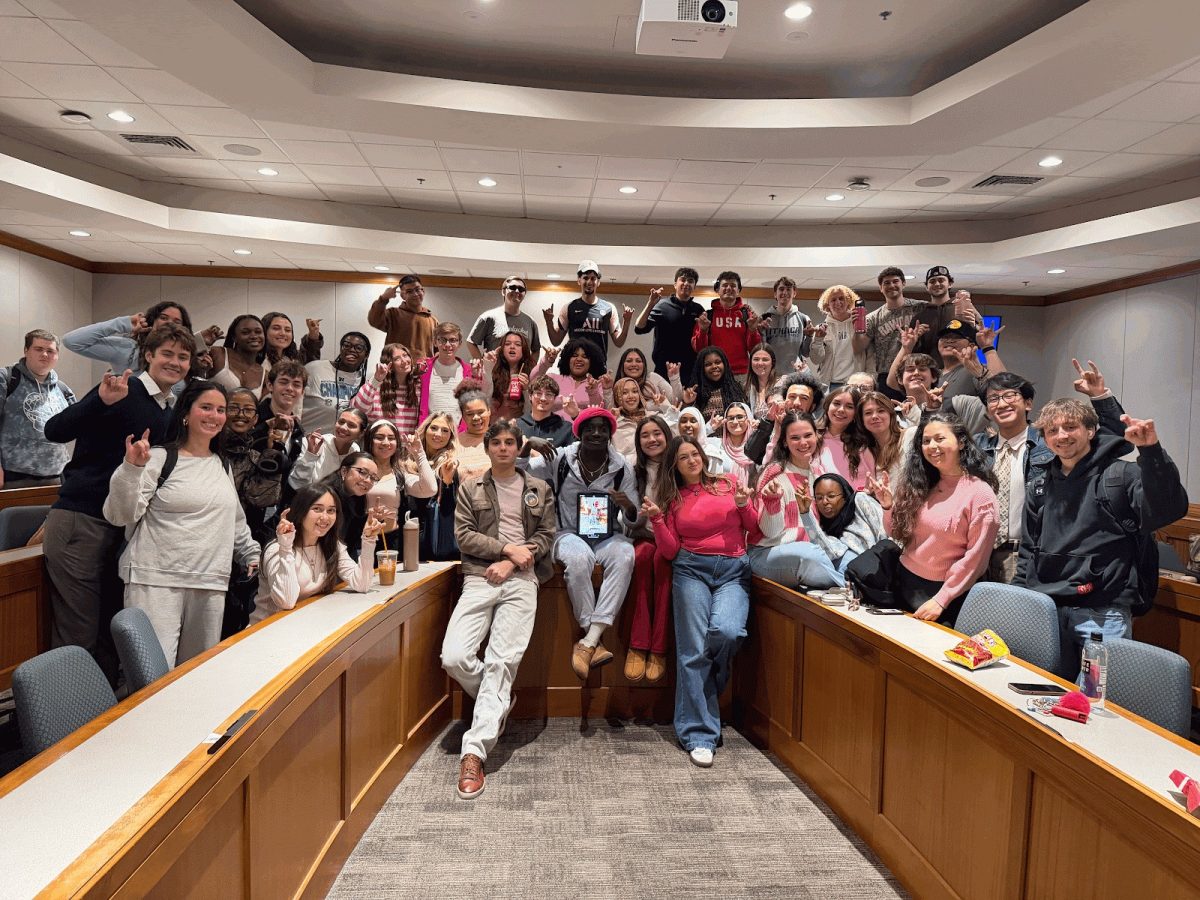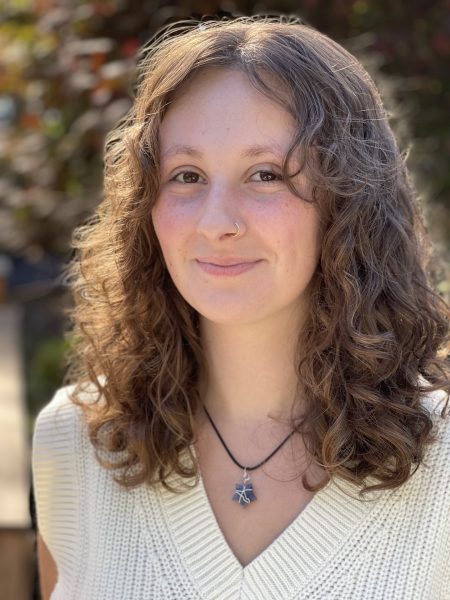Editor’s note: Due to security concerns held by some members of our community, some of the sources in this story are attributed to by first name only.
In a wave of executive orders signed by President Donald Trump, the beginning steps of dismantling the Department of Education were passed March 20. With 98% of students attending Suffolk University on financial aid, community members are worried for what their future may hold.
Trump said the executive order is aimed at to returning education to parents, states and communities while liberating taxpayers from the “burden of tens of billions of dollars wasted on progressive social experiments and obsolete programs.” While the Department of Education provides essential funding for schools in low-income communities, programs for students with disabilities and financial aid, these were not protected in Trump’s order.
Bryan Landgren is the assistant director of the Center for First Generation and Education Equity at Suffolk as well as the McNair Scholars Program Director. A few weeks ago, Landgren posted on LinkedIn, calling out the executive order and the implications its dismantling would have on higher education and the students he represents in his job.
“Nothing will ever matter more to me than advocating for my students. I don’t do this work for myself, I do it for them,” said Landgren in a conversation with The Journal.
According to the university’s website, one-third of Suffolk students are first-generation, meaning they are the first in their family to attend college. With this, there are many programs and opportunities for first generation and income eligible students to find their place in their respective programs and fields, such as the McNair Scholars.
The McNair Scholars is a federal TRIO program that gives mentorship and opportunities for students from disadvantaged backgrounds an opportunity and access to graduate school. There are 26 McNair Scholars at Suffolk that are all researching and specializing in different areas.
“This program is a lifeline to a student,” said Landgren.
Amanda is a junior psychology major and McNair Scholar at Suffolk. She said that she is a proud first-generation Latina woman from a low income background and the McNair program is important in giving people like her the encouragement and resources to pursue more education.
Amanda said that some programs and outreach started in high school.
“If those [programs] were not available to me, I have no idea what I would be doing,” said Amanda. “If those weren’t an option, I don’t know if I would be in college right now.”
Ayan Mohamed is also a McNair Scholar at Suffolk. With a major in political science, Mohamed has the opportunity to research and learn what she wants to do with her future.
“Since I joined, it’s just been like such an endless support system. Everyone in that office kind of feels like a family,” said Mohamed. “You can really go to them and talk to them about everything and they’ll be there to support you in any kind of way, whether it’s educational, whether it’s just emotional support, they’re there and it’s a place where I haven’t found that type of support elsewhere in Suffolk.”
While the Trump administration said that “core necessities” of the Department of Education would be preserved, it is unclear what will fall under that classification.
“These programs are just, they’re a necessity. They are simply a necessity for our future,” said Mohamed.
For students in college, federal loans and grants, as well as programs like McNair Scholars, are funded by and processed through the Department of Education.
At its core, the Department of Education stands to “promote student achievement and preparation for global competitiveness by fostering educational excellence and ensuring equal access,” according to its mission statement. The department was founded by Congress in 1979 and is responsible for oversights in anti-discrimination laws and distributing aid. For elementary and secondary schools, the Department of Education is home to roughly 8% of funding to schools, according to its website, for low-income and disability services. The rest of the funding is determined state-by-state.
In terms of post-secondary education, the Department of Education facilitates federal loans and grants. Additionally there are eight TRIO programs run through the department. According to the Department of Education website, these programs are “targeted to serve and assist low-income individuals, first-generation college students and individuals with disabilities to progress through the academic pipeline from middle school to post baccalaureate programs.”
“When the Department of Education was founded, it was founded on the basis of equitability, it was founded on the understanding that we need to make sure education is accessible. So with the dismantling of the Department of Education, I mean, we can read between the lines,” said Landgren.
With the uncertainty of the Trump administration’s dismantling of the Department of Education, first-generation students, students who are a part of the McNair program at Suffolk and students who rely on federal financial aid are worried.
For Nisa Rivera, a senior criminal justice major and McNair Scholar, federal aid is the reason she and her siblings have been able to pursue higher education. Rivera said that she got an offer to get her PhD next year, but has since changed her plans due to federal government actions.
“It’s terrifying, and because my whole entire life, in order to go to college, I’ve had to have financial aid the entire time,” said Rivera.
Kayla Moses is a senior psychology major and first-generation college student. She plans on attending William James College for graduate school this coming fall, however the fellowship she was awarded is funded directly by the Department of Education.
“I feel like there’s just so much uncertainty surrounding the topic in general that it’s like nobody really knows what’s going on. But I do worry [about] being able to afford school, like it’s going to be rough if I don’t have that fellowship,” said Moses.
Other students who rely on financial aid expressed their fears for what next semester could look like for them. They also expressed that this aid is not taken for granted, money they receive is not treated lightly.
Mohamed said that a common misconception that she hears is that the government is just “handing out money.” However, Mohamed said, this is not true.
“Yes we get stipends and stuff for our research,” said Mohamed. “[But] it’s not just things that are just being handed out, it’s things that are actively being worked for. People are doing the work for it. It just makes you feel less like you don’t have all these opportunities to go and get every single thing you want, and people genuinely believe you don’t deserve to have those opportunities because you can’t pay for them,” said Mohamed.
Rivera said that when she focuses on her academics, the money she is given is not forgotten about.
“I understand that this is money that I largely won’t have to pay back or I get more assistance compared to other people. But it’s not something that I take for granted. It’s what I think about whenever I perform academically, I think about my grades and what I need to do to keep that funding. It’s very important. And it’s not like I don’t realize the gravity of my situation,” said Rivera.
For Amanda, the work she does is to create a better society as a whole – she wants to give back to the community and make a more equitable society, and this cannot be done without the funding and resources that come from the Department of Education.
“I just want whoever is reading or hearing this to feel the fear that is in a lot of our hearts in thinking about how some of these resources can be taken away, especially because we are here to contribute back to the world,” said Amanda.
She also highlighted that not everyone understands why this aid and these resources exist, especially for people of color, low income individuals, first-generation people and other minorities.
“[People] don’t recognize the privilege of some of those statements. So it’s very hard to hear that when it’s just not an even playing field, and even with these programs, it’s still not an even playing field, but it’s an attempt to make the world a more equitable place,” said Amanda.
Landgren acknowledged the privilege that he holds with his identity and position while serving this community.
“I have the privilege of always holding the microphone, it’s my responsibility to give it to those that don’t have access to it,” said Landgren.
However, fear is not absent from his mind either because it’s not just students who are affected by changing policies in the Department of Education. According to Landgren, a significant amount of his salary is paid for by the department and job security is not absolute right now.
“I won’t lie, there are fears every single day that my job will go away tomorrow, because we don’t know,” said Landgren.
For some, these policies feel distant and are difficult to imagine until they are being directly impacted. Mohamed saw how personal and real these realities are when she attended a conference in Washington, D.C. during Trump’s inauguration.
One panel that they attended, Mohamed said, was given by two Republicans who were talking about the Department of Education and how it should be dismantled.
“We need those funds, we need those programs, we need those grants. I don’t expect much anymore. And it just kind of destroyed the hope I have for anything,” said Mohamed.
The challenge to the Department of Education comes as conversations around diversity, equity and inclusion, and other sections of federal funding are being shifted. Most recently, Harvard University lost $2.2 billion in federal funding due to its refusal to comply with Trump administration demands.
“When I think about my program, I think about the students, I think about the people that want this. They’re choosing to be here. They’re choosing to continue to show up. They’re showing up scared. They’re showing up passionate, but they’re showing up confident that they’re going in the right direction, even when the outside world feels like you’re kind of going upstream,” said Landgren.
Amanda said that she wants to be a school counselor one day. According to her, this is the way she will be giving back to make a better place for all people.
“I want to be able to make a difference in the lives of children who are going through something at home and school is their only safe space, and that could be your child one day, so maybe just something to think about,” said Amanda.





















